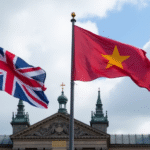Background on the Case and Key Players
In a controversial decision, Judge Ana Atocha of Campeche’s interim control system has ordered that journalist Jorge Luis Gonzalez Valdez and the Tribuna newspaper must obtain prior approval from the Campeche Superior Court of Justice before publishing any content related to Governor Layda Sansores San Román.
Jorge Luis Gonzalez Valdez is a prominent journalist known for his investigative work, while Tribuna is one of Campeche’s leading newspapers. Their reporting often scrutinizes the actions and policies of public officials, including Governor Layda Sansores San Román.
Expert Analysis and Concerns
Pedro Cárdenas, an advocate for freedom of expression and the protection officer at civil organization Article 19, has expressed deep concern over this judicial decision. He argues that it sets a dangerous precedent by allowing the judiciary to interfere with press freedom.
“These precautionary measures go far beyond the role of the judiciary, including appointing an official censor to decide what can and cannot be published,” Cárdenas explained. “There is no clear delineation of this authority within the judiciary, nor is it evident that those responsible possess the necessary knowledge and understanding of freedom of expression issues.”
Cárdenas further emphasizes that such actions by the judiciary undermine the fundamental right to freedom of expression, which includes tolerating critical discourse and challenging viewpoints from public officials.
Legal Standards and Limits
Cárdenas acknowledges that freedom of expression has limits, which are defined by international standards like the International Covenant on Civil and Political Rights (ICCPR) and Mexico’s constitutional framework.
“Any restrictions on freedom of expression must pass a three-part test: legality, proportionality, and a clear objective,” he said. “First, the restriction must be clearly established in law; second, it should have a clear protective purpose; and third, it must be proportionate.”
Implications for Public Debate and Democracy
Cárdenas warns that such judicial interference poses a significant risk to public debate, which is crucial in a democracy. Media outlets play an essential role in balancing public access to information and holding officials accountable.
“When the judiciary interferes with press freedom, it weakens public debate and undermines the vital role of media in a democratic society,” Cárdenas concluded.
Key Questions and Answers
- What is the main issue in this case? The Campeche Superior Court of Justice has ordered that journalist Jorge Luis Gonzalez Valdez and the Tribuna newspaper must obtain prior approval before publishing content related to Governor Layda Sansores San Román.
- Who is Jorge Luis Gonzalez Valdez? He is a well-known journalist who has reported on public officials, including Governor Layda Sansores San Román.
- What is the concern raised by Pedro Cárdenas? Cárdenas, an advocate for freedom of expression, argues that this judicial decision sets a dangerous precedent by allowing the judiciary to interfere with press freedom.
- What are the legal standards for restricting freedom of expression? According to Cárdenas, any restrictions must be legally established, have a clear protective purpose, and be proportionate.
- Why is this case significant for public debate and democracy? Cárdenas warns that judicial interference in press freedom weakens public debate, which is essential for a functioning democracy.






